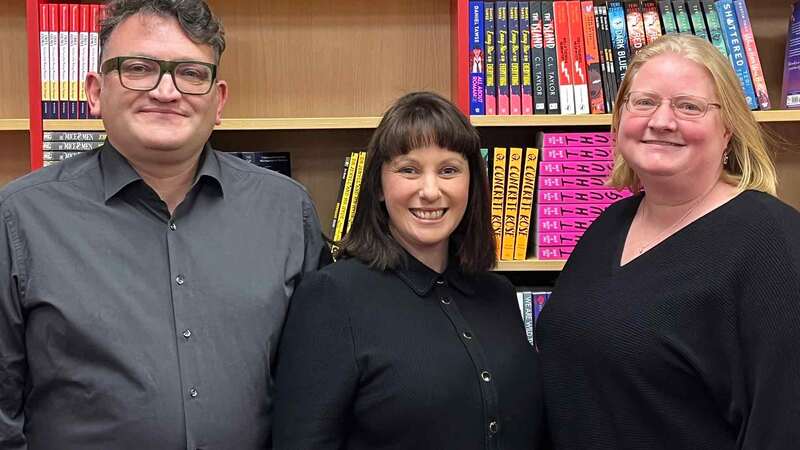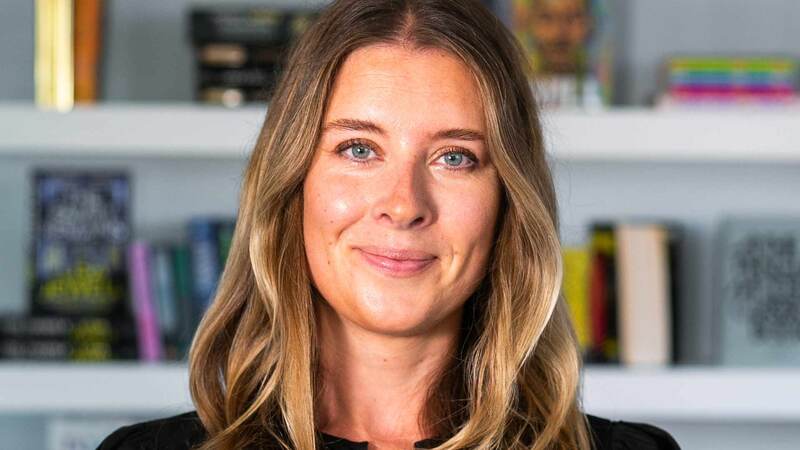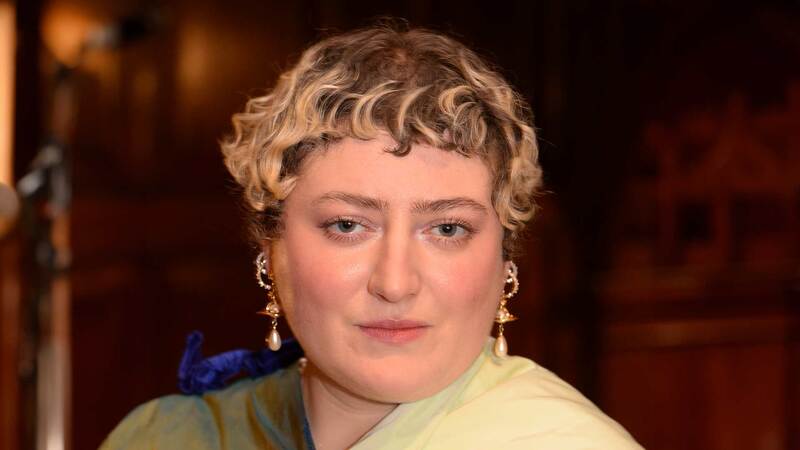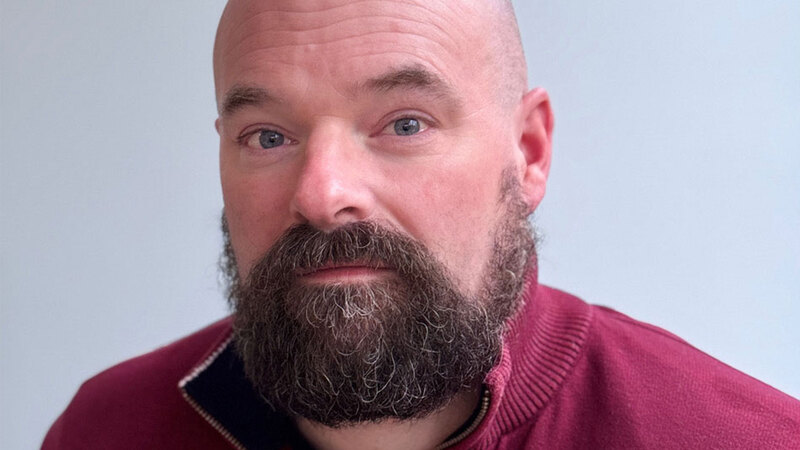You are viewing your 1 free article this month. Login to read more articles.
Booker Prize shortlist dominated by PRH titles as Ishiguro left out
Anuk Arudpragasam, Damon Galgut, Patricia Lockwood, Nadifa Mohamed, Richard Powers and Maggie Shipstead have been shortlisted for this year's Booker Prize, in a selection dominated by PRH titles but with the notable absence of previous winner Kazuo Ishiguro.
This year's finalists for the £50,000 award were revealed by literary director Gaby Wood and historian Maya Jasanoff, who presided over a judging panel including twice Booker-shortlisted novelist and professor Chigozie Obioma, and writer and former Archbishop Rowan Williams.
The list features four PRH imprints, alongside independents Granta and Bloomsbury. However, there is no place on the list for Ishiguro, whose book Klara and the Sun (Faber), is the author's biggest-selling hardback in the BookScan era and was praised by judges in the longlist for its "haunting narrative voice".
Lockwood is the only shortlisted debut writer this year, while Galgut makes the list for the third time having previously been recognised for The Good Doctor in 2006 (Atlantic) and In A Strange Room in 2010 (Atlantic ). Powers makes his second shortlist appearance following The Overstory in 2018 (Cornerstone). There is an equal split of men and women on the list.
Mohamed is the first British Somali novelist to be shortlisted for the prize. Three other shortlisted writers are from the US in Lockwood, Powers and Shipstead, while Arudpragasam is Sri Lankan and Galgut is South African.
Arudpragasam is shortlisted for his second novel A Passage North (Granta), which revolves around the philosophy of the present as a disease of the past. Judge Horatia Harrod said: "Arudpragasam turns his poetic sensibility and profound, meticulous attentiveness to the business of living in the aftermath of trauma. The story unfurls like smoke as our narrator sifts through memories of a lost love affair while turning over in his mind the strange death of his grandmother’s carer, a woman irrevocably damaged by the death of her young sons in the Sri Lankan civil war. In hypnotic, incantatory style, Arudpragasam considers how we can find our way in the present while also reckoning with the past."
Galgut's The Promise (Chatto & Windus) was also selected and praised by Obioma for its "unusual narrative style that balances Faulknerian exuberance with Nabokovian precision, pushes boundaries, and is a testament to the flourishing of the novel in the 21st century". He added: "In The Promise, Damon Galgut makes a strong, unambiguous commentary on the history of South Africa and of humanity itself that can best be summed up in the question: does true justice exist in this world? The novel’s way of tackling this question is what makes it an accomplishment and truly deserving of its place on the shortlist."
Judges also chose Lockwood's No One is Talking About This (Bloomsbury Circus), which Williams described as an "extremely funny, poignant and challenging book". He added: "Lockwood manages to tell her story in the glancing, mayfly-attention-span idiom of contemporary social media, but she uses this apparently depth-free dialect with precision and even beauty. The drastic shift of gear in the middle of the story, the introduction of real suffering, love and loss, doesn't break the seamless flow of wit; but the book's triumph is in evoking so full a range of emotional discovery and maturing within the unpromising medium of online prattle."
Also in the running is Mohamed's The Fortune Men (Viking) which is set in the docklands of 1950s Cardiff, jostling with Somali, Welsh, Jewish, Jamaican, and Indian communities, thrown together by the tides of empire and war. Jasanoff said: "Mohamed creates a story as local as it is exhilaratingly global. Grippingly-paced and full of complex, richly-drawn characters, the novel combines pointed social observation with a deeply empathetic sensibility. The Fortune Men demonstrates what historical fiction can achieve at its best—to get inside the head of the past—while implicitly yet urgently underscoring the present-day persistence of racism and injustice."
There is also a nod for Powers' Bewilderment (Heinemann Hutchinson), which follows a widowed astrobiologist raising a troubled nine-year-old son tagged with a ‘special needs’ label. It was described by judge Natascha McElhone as "a clarion call for us to wake up and realise what our minds might be truly capable of if we were less obedient to the status quo".
Completing the list is Shipstead's third novel Great Circle (Doubleday) which tells the story of the doomed fictional aviatrix Marian Graves and a Hollywood actress cast in her biopic decades later. Jasanoff described the book as "of tremendous narrative ambition and scale" and said: "Shipstead has an extraordinary ability to conjure characters and settings so fully-realised one feels one knows them—and spills her story out in one gorgeously-crafted sentence after another."
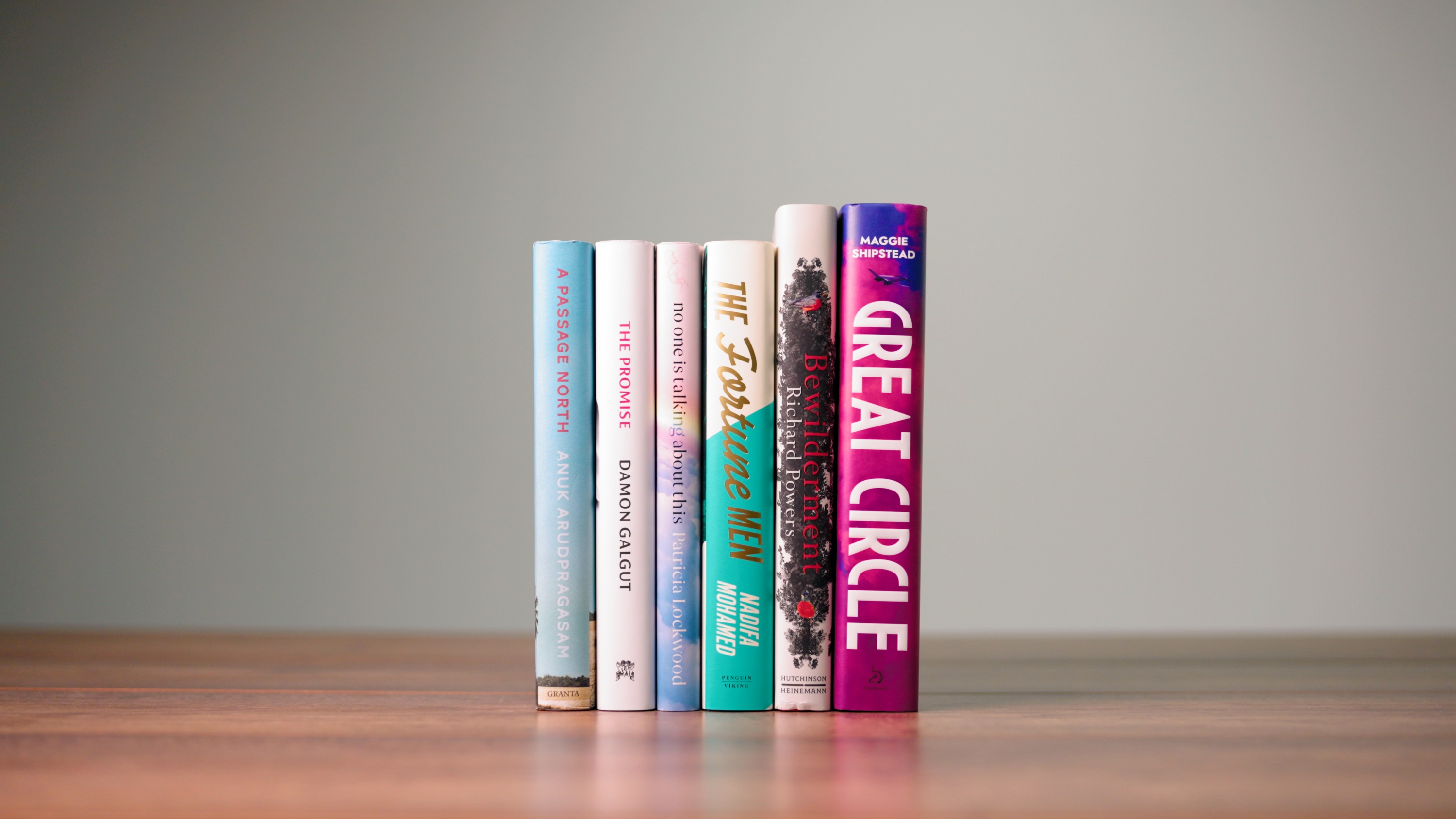
Speaking about the shortlist, Jasanoff said: "With so many ambitious and intelligent books before us, the judges engaged in rich discussions not only about the qualities of any given title, but often about the purpose of fiction itself. We are pleased to present a shortlist that delivers as wide a range of original stories as it does voices and styles.
"Perhaps appropriately for our times, these novels share an interest in how individuals are both animated and constrained by forces larger than themselves. Some are acutely introspective, taking us into the mind of a Tamil man tracing the scars of Sri Lanka’s civil war, and an American woman unplugging from the internet to cope with a family crisis. Some enter communities in the throes of historical transformation: the Cardiff docklands in the early years of British decolonisation, and the veld around Pretoria in the last years of apartheid. And some have global sweep, following a mid-century aviator in her attempt to circumnavigate the planet, and a present-day astrobiologist raising a son haunted by climate change. While each book is immersive in itself, together they are an expansive demonstration of what fiction is doing today."
Wood added: "This year, over the course of nine largely solitary months, five strangers of disparate backgrounds showed each other what they saw in stories, what dazzled them or challenged them, what touched them or left them unmoved. In the process they showed something of themselves, and came to trust each other as a result.
"They also proved that the best literature is elastic: both because so many different things can be seen in it, and because, as one of the judges said, the best of fiction can make you feel as though your mind, or heart, are a little bit larger for having read it.
"In congratulating the shortlistees, it's worth remembering how true this remains of the 2021 longlist, all of which will continue to be celebrated at thebookerprizes.com, the new home of the prizes and the half-century-old Booker Library."
When asked about there being only one British author on the list, chair Jasanoff told reporters the books chosen "are really representing a whole diversity of perspectives from around the world, regardless of what passport the author is carrying". She said: "Literature, particularly as we go more and more into the 21st century, is something that has always crossed borders and continues to cross borders in striking ways."
Responding to a question on how the prize would respond to an author-led campaign to reverse the prize back to being just for Commonwealth writers, director Wood said the prize would listen to the reasons why if it is "strongly felt to be a problem" but said she personally found the idea "a little bit problematic". She said: "I think there are political as well as literary problems with reverting to a Commonwealth framework, it is essentially a colonial framework, I don’t know if this is the right time to do that if there ever was a good time."
Reacting to the shortlist, The Bookseller's books editor Alice O'Keeffe said: "The big surprise, I think, is the absence of Kazuo Ishiguro’s Klara and the Sun, arguably the best-known author on the longlist. But both Damon Galgut and Richard Powers have been nominated for the Booker before and are greatly admired so must be strong contenders. The only debut to make the shortlist, Patricia Lockwood’s No One is Talking About This, also appeared on the Women’s Prize shortlist and has clearly caught the prevailing mood. It’s exciting to see the British/Somali writer Nadifa Mohamed recognised for The Fortune Men, her third novel. I’m disappointed though that Francis Spufford’s Light Perpetual didn’t make the final cut but very pleased to see Maggie Shipstead’s Great Circle."
Nielsen BookScan data shows No One is Talking About This has sold the most copies so far, on 6,751. It is followed by The Promise on 5,617, Great Circle on 3,857, The Fortune Men on 2,554 and A Passage North on 2,023. Bewilderment is published on September 21st, so there are no sales for that yet.
This year's winner will be announced on 3rd November in an award ceremony held in partnership with the BBC at Broadcasting House’s Radio Theatre. It will be broadcast live on BBC Radio 4’s "Front Row", BBC iPlayer, and the BBC News Channel.
Wood said it was originally hoped the event would be opened up to the general public this year, or for book groups and librarians to enter a competition to win a place. However, she told reporters that was "probably not going to be possible". She added it will be live streamed and there will be a number of special guests.
There will also be two hybrid in-person and digital public events featuring interviews with and readings from the authors at Coventry University, as part of the UK City of Culture 2021 celebrations, on 29th October at 7.30 p.m., chaired by Lemn Sissay, and at Southbank Centre on 31st October at 7.30 p.m. chaired by Kit de Waal.
The winner will be interviewed live online in their first public event on 9th November in partnership with Guardian Live. They will also take part in a digital event for Hay Festival’s Winter Weekend, which runs from 24th to 28th November.





